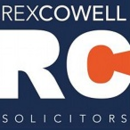Cost recovery clauses
Many commercial and residential leases contain clauses entitling the landlord to recover their costs in a variety of situations. For example, in serving a Section 146 notice, dealing with any requests or consents and in the recovery of arrears.
Generally, the older the lease, the less comprehensive the cost recovery clause. Indeed some very old leases do not contain any cost recovery clauses at all.
Until recently, cost recovery clauses did not warrant much significance as costs were largely recoverable in the court process. However, three factors have changed this thinking.
Factor One:
Relates to the Solicitors Code of Conduct. It is now regarded as improper conduct for a solicitor to send a letter before action and demand the costs of that letter as part of the debt. This is because the cost of writing the letter can only be recovered as part of any subsequent court proceedings and if proceedings are not issued, there are no recoverable costs for writing the letter.
Factor Two:
Concerns the small claims track. Only very limited costs can be recovered on the small claims track. It is worth noting that the upper limit of claims in the small claims track has been increased from £5,000 to £10,000, thus bringing more actions within this costs regime.
Factor Three:
Concerns changes to the litigation rules. When it came to assessing costs under the old rules, as long as they were 'reasonable' then there was a realistic chance of recovering 80% to 90% of the costs. However, the new rules state that the amount of any costs award must now be 'reasonable and proportionate.'
There is no guidance on what figure is 'reasonable and proportionate' as it is up to each judge making a decision on each case but in our experience cost recoveries are now coming in at 50% to 60% of the costs incurred.
If a landlord is faced with a problem tenant who will not pay the rent or otherwise comply with the covenants in his lease (and the landlord does not want to forfeit the lease), it is generally held that the landlord should not have to bear a large proportion of the legal costs simply to force the tenant to comply with his lease covenants. This is where a well drafted costs recovery clause can provide a solution.
Cost recovery clauses in modern leases now contain a provision requiring the tenant to pay all the costs of the landlord in dealing with any breaches of covenant including the recovery or attempted recovery of arrears. This wording allows the landlord to recover the vast majority of its costs regardless of both the sum in dispute and the costs awarded in any court action.
The advice for landlords is therefore, when contemplating action against a problem tenant, take a good look at the costs recovery clauses as this will have a considerable bearing on the cost economics of the exercise.
This article was written by Rex Cowell. It was published as 'The increasing importance of cost recovery clauses' on 14 May 2015.
You can see more articles by Rex Cowell here.
[edit] Find out more
[edit] Related articles on Designing Buildings Wiki
Featured articles and news
Building Safety recap January, 2026
What we missed at the end of last year, and at the start of this...
National Apprenticeship Week 2026, 9-15 Feb
Shining a light on the positive impacts for businesses their apprentices and the wider economy alike.
Applications and benefits of acoustic flooring
From commercial to retail.
From solid to sprung and ribbed to raised.
Strengthening industry collaboration in Hong Kong
Hong Kong Institute of Construction and The Chartered Institute of Building sign Memorandum of Understanding.
A detailed description fron the experts at Cornish Lime.
IHBC planning for growth with corporate plan development
Grow with the Institute by volunteering and CP25 consultation.
Connecting ambition and action for designers and specifiers.
Electrical skills gap deepens as apprenticeship starts fall despite surging demand says ECA.
Built environment bodies deepen joint action on EDI
B.E.Inclusive initiative agree next phase of joint equity, diversity and inclusion (EDI) action plan.
Recognising culture as key to sustainable economic growth
Creative UK Provocation paper: Culture as Growth Infrastructure.
Futurebuild and UK Construction Week London Unite
Creating the UK’s Built Environment Super Event and over 25 other key partnerships.
Welsh and Scottish 2026 elections
Manifestos for the built environment for upcoming same May day elections.
Advancing BIM education with a competency framework
“We don’t need people who can just draw in 3D. We need people who can think in data.”
Guidance notes to prepare for April ERA changes
From the Electrical Contractors' Association Employee Relations team.
Significant changes to be seen from the new ERA in 2026 and 2027, starting on 6 April 2026.
First aid in the modern workplace with St John Ambulance.
Solar panels, pitched roofs and risk of fire spread
60% increase in solar panel fires prompts tests and installation warnings.
Modernising heat networks with Heat interface unit
Why HIUs hold the key to efficiency upgrades.

























